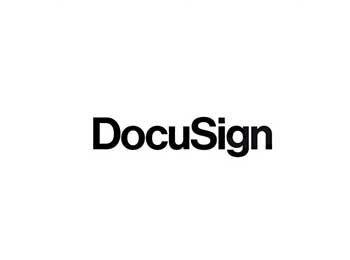Digital signatures have become an essential part of doing business in the modern world. Allowing documents to be signed electronically has made many processes much more efficient.
Two of the biggest players in this market are DocuSign and VeriSign.
But which is better for your needs? This comprehensive guide will compare the key features and use cases of these two platforms to help you decide.
A Brief Comparison Table
| Feature | DocuSign | VeriSign |
| Purpose | Digital transaction management | Document authentication |
| Key Functions | Workflow, editing, eSignatures | Tamper-proof seal |
| Ease of Use | Very easy, customizable | Technical, for developers |
| Validity | Legally-binding in 180+ countries | Globally trusted authentication |
| Security | Encryption, controls, compliance | Encryption, certificates, non-repudiation |
| Integrations | 350+ third-party apps | Limited integrations |
| Scalability | Individuals to large enterprises | Large regulated organizations |
| Pricing | Starts free, cost-effective plans | Expensive, enterprise-focused |
| Use Cases | Wide variety from HR to sales | Highly sensitive documents |
Overview Of DocuSign
Founded in 2003, DocuSign allows users to electronically prepare and sign documents and collect signatures from others. It integrates with over 350 other apps including Salesforce, SAP, Oracle, Microsoft, and Google.
Some key features include:

- Drag-and-drop editor to customize documents
- Custom workflows and routing for signatures
- Legally-binding eSignatures in over 180 countries
- Audit trails and proof of delivery
- Secure cloud storage for signed documents
- APIs for easy integration
- Mobile apps for signing on-the-go
DocuSign is designed to be user-friendly even for non-technical users. It aims to accelerate transaction times by reducing paper-based processes.
DocuSign is used by major enterprises as well as individual professionals and smaller businesses.
Overview Of VeriSign
VeriSign was founded in 1995 and provides digital security services. When it comes to eSignatures, VeriSign Secured Seal provides a tamper-evident seal for documents and email.
This helps prove the authenticity and integrity of digital documents.

Some key features include:
- Visible seal on PDFs to prove authenticity
- Encryption and timestamping
- Tamper-evident technology
- Integration with Adobe Acrobat and Microsoft Office
- Authentication using credentials
- APIs for integration into other apps
The VeriSign seal focuses on document security rather than workflows.
It’s aimed at enterprises and large organizations that need to ensure sensitive digital documents are not compromised.
DocuSign And VeriSign: In-Depth Comparison Of Key Features
Ease of Use
Winner: DocuSign
DocuSign provides a very user-friendly workflow for creating, sending, signing, and managing documents. The drag-and-drop editor makes it easy for anyone to customize documents with fields for signatures, dates, initials, and more. No special training is required to start using DocuSign.
VeriSign is more technical and geared towards developers. While it provides good security, it requires more work to integrate into applications. The end user experience is not as smooth as DocuSign out of the box.
Features and Functionality
Winner: DocuSign
DocuSign offers a much wider breadth of features for managing digital transactions end-to-end. This includes:
- Custom branding
- Detailed audit trails
- Signals for automated follow-up
- Collapsible sections
- SMS and email reminders
- Payment collection
- ID verification
VeriSign focuses specifically on document security. So while it does that one thing very well, it lacks the extensive features for workflows and document management that DocuSign provides.
Watch this video about DocuSign!
Validity of Signatures
Winner: Tie
Both DocuSign and VeriSign use digital certificates and encryption to secure documents and signatures. Signatures from both platforms are legally valid and enforceable.
DocuSign meets the U.S. ESIGN Act and eIDAS in the EU for signature validity. VeriSign also complies with global standards for digital signatures. So in terms of legal standing, both offer equally valid eSignatures in most jurisdictions.
Security
Winner: Tie
DocuSign and VeriSign both use robust security measures like encryption, access controls, and audit trails.
DocuSign offers features like two-factor authentication, single sign-on, and TLS v1.2 protocols. VeriSign also has government-grade digital certificates and timestamping for non-repudiation.
For most use cases, both platforms provide excellent security and tamper-proofing for digital documents. Enterprises with very sensitive data may favor VeriSign, but both are secure.
Developer Tools & Integration
Winner: DocuSign
DocuSign provides broader integration capabilities through APIs and over 350 pre-built integrations on its App Hub. This allows smooth connectivity with popular business apps.
VeriSign also has APIs but tends to be more developer-focused. As it addresses a narrower problem space, VeriSign has fewer turnkey integrations ready for businesses to leverage.
Also Read: Comparison Between Mission Solar And LG Solar Panels.
Pricing
Winner: DocuSign
DocuSign offers several affordable plans for individuals, teams, and enterprises. Pricing starts free for limited use and goes up to $40/month for individuals. Enterprise pricing is custom quoted.
VeriSign has no free plan and starts at $699/year for up to 5 users. Volume discounts are available for large organizations.
For small businesses or occasional personal use, DocuSign has a pricing advantage. But for large enterprises sending high volumes of documents, VeriSign can become more cost-effective at scale.
Use Cases
DocuSign: HR onboarding, sales contracts, mortgage applications, client agreements, NDAs, and more. Suitable for personal use up to large enterprises.
VeriSign: Financial documents, confidential legal matters, government forms, sensitive enterprise communications where tamper-proofing is critical. Ideal for large regulated organizations.
Also Read: Comparison Between Atlassian And Salesforce.
Frequently Asked Questions (FAQ)
Pros
User-friendly workflow for eSignatures
Drag-and-drop editor for documents
Legally-binding signatures in 180+ countries
Integration with 350+ business apps
Affordable pricing even for individuals
Cons
Can’t guarantee non-repudiation like VeriSign
Maximum security requires business plan
Features can be overwhelming for basic use cases
DocuSign is considered the best eSignature solution for several reasons:
Leading features and functionality like workflows, reminders, payment collection, Easiest to use even for non-technical users, Valid signatures compliant with global regulations, Seamless integration with popular business tools, Scales from individual to enterprise use cases, More affordable pricing than competitors.
DocuSign is a publicly traded company (NASDAQ: DOCU) founded in 2003 in San Francisco. Though public, large institutional investors like Morgan Stanley and Bank of America own significant stakes in the company.
No, DocuSign and Adobe are completely separate publicly traded companies. Adobe has its own e-signature product called Adobe Sign that competes with DocuSign in the digital transaction management space. But Adobe does not own or control DocuSign.
Conclusion
Here is a quick summary comparing DocuSign and VeriSign:
| Category | DocuSign | VeriSign |
| Ease of Use | Winner | Too technical |
| Features | Winner | Lacks workflow features |
| Validity | Tie | Equally valid signatures |
| Security | Tie | Both very secure |
| Integrations | Winner | Fewer integrations |
| Pricing | Winner | Costly for individuals/SMBs |
For most general business and personal use cases, DocuSign comes out ahead with its end-to-end workflow features, great user experience, and affordable pricing.
VeriSign is ideal for large regulated enterprises that need government-grade document security for highly sensitive data and communications. But it lacks DocuSign’s broad feature set.
So, in summary, DocuSign is the best all-round solution for legally-valid eSignatures, while VeriSign excels at tamper-proofing for documents with strict security requirements. Evaluate your specific needs, users, and budget to decide which is a better fit.
